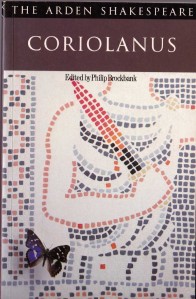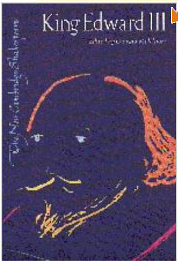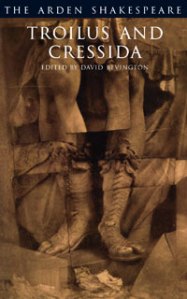That’s right, it’s Round Three in the battle to be our touring Shakespeare of 2012, and today it’s Romans & Egyptians versus Greeks!
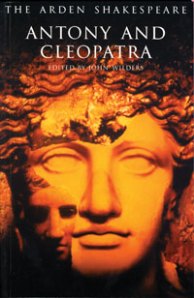 Everyone loves a sequel, which is why some of the current Bacchanals are huge proponents of Antony and Cleopatra, with the motion tabled that Jonny and Salesi play the mature version of star-crossed lovers. It goes without saying that under this logic, Andrew reprises his Octavius Caesar, and Elle would be back as Lepidus. You can’t quite see it reading it the way everyone could see 2 Henry VI clearly – after all, while those early Histories were probably written for the same company of actors (and therefore had continuity of character), I don’t think the same is true of the relationship between Julius Caesar (1599) and Antony and Cleopatra (around 1605). We do know, in the same metatheatrical referencing that tells us Brutus and Caesar went on to play Hamlet and Polonius, that the same actors who played Antony and Octavius in Antony and Cleopatra went on to play Macbeth and Banquo.
Everyone loves a sequel, which is why some of the current Bacchanals are huge proponents of Antony and Cleopatra, with the motion tabled that Jonny and Salesi play the mature version of star-crossed lovers. It goes without saying that under this logic, Andrew reprises his Octavius Caesar, and Elle would be back as Lepidus. You can’t quite see it reading it the way everyone could see 2 Henry VI clearly – after all, while those early Histories were probably written for the same company of actors (and therefore had continuity of character), I don’t think the same is true of the relationship between Julius Caesar (1599) and Antony and Cleopatra (around 1605). We do know, in the same metatheatrical referencing that tells us Brutus and Caesar went on to play Hamlet and Polonius, that the same actors who played Antony and Octavius in Antony and Cleopatra went on to play Macbeth and Banquo.
I’ve always found Antony and Cleopatra, with its numerous choppy scenes, quite a weird play and my only experience of it onstage was seeing Mark Rylance play Cleopatra at the reconstructed Globe in 1999. You know how immediate and engaging the Baz Luhrmann or Franco Zeffarelli films of Romeo and Juliet seemed when they came out? I think it’s to do with the vitality and energy of the central couples in both films. By contrast, the central relationship in the George Cukor film of the 1930s is laughable – not because of the age of the film but because of the age of the actors. Who cares about the plighted love of Norma Shearer (in her 30s) and Leslie Howard (in his 40s)? I think that’s where my unease with Antony and Cleopatra has always come from: can an audience really invest in and engage emotionally with two middle-aged lovers behaving like impetuous teenagers? Of course, now that I’m nearer Antony in age than Romeo I have a much better understanding of what compels us to abandon notions of adulthood and keep trying to recreate or hold onto the passions of youth. The plot: Antony and Cleopatra have a devastating row then a passionate reconciliation, Antony and Cleopatra have another devastating row and then another passionate reconciliation, Antony and Cleopatra have another devastating row and then another passionate reconciliation, Antony and Cleopatra have yet another devastating row, she sends him word she’s dead (that’ll teach him!) so he commits suicide but botches it, so they have an awkward partially-comedic scene together as he slowly bleeds to death, and then she commits suicide rather than be subjugated by Octavius Caesar.
 Timon of Athens has long been one of my favourites and I like how the Arden Shakespeare website cites Coleridge calling it the stillborn twin of King Lear. Timon of Athens hails from the same era as Antony and Cleopatra and most recent editions have put it firmly in this fashionable new Shakespeare-Middleton-collaboration-or-revision category. I’ve always believed it’s the closest Shakespeare got to writing a play about his father: like John Shakespeare, Timon goes from being the most popular guy in town to being afraid to leave his house for fear of being arrested for debt. Essentially, Timon keeps throwing lavish parties and being beneficent and giving to everyone he knows in the belief that as he has been generous to those in need, they’ll repay the favour when the tables are turned. And of course, when he goes bankrupt all his supposed friends can’t or won’t help him out financially. But the moment he announces another lavish party, they all turn up to eat and drink on him. He denounces everyone (throwing at them the dishes full of warm water and stones he has served up – think about it!!), runs off into the wilderness, and lives in a cave for the rest of the play while Athens wars with Alcibiades. People come to visit him in the cave because he’s found a buried pirate’s fortune, but he tells them all to get bent and dies in misery, hating mankind. Good fun. Timon introduces a few motifs we’ll see again and again in the later plays – Timon’s steward is the prototype for Kent in Lear, plus Camillo (The Winter’s Tale), Helicanus (Pericles), Pisanio (Cymbeline) – while also carrying on some of the ones we’re already used to – the cynical ranting Apemantus has his origins in Lucio (Measure For Measure), Parolles (All’s Well That Ends Well), Thersites (Troilus and Cressida) but has a lot in common too with the Fool (King Lear) as being the only person speaking sense but the only person never taken seriously. Timon is a much more internal, insular play than Lear – after all, the main character is just a guy rather than a king – but I think Timon, in being ordinary rather than royal, is a much greater Everyman than Lear and it’s always baffled me how seldom this play is performed given it’s one of the few that will never be not-relevant – it’s up there with Othello in its immediacy of subject matter and examination of the most basic human condition.
Timon of Athens has long been one of my favourites and I like how the Arden Shakespeare website cites Coleridge calling it the stillborn twin of King Lear. Timon of Athens hails from the same era as Antony and Cleopatra and most recent editions have put it firmly in this fashionable new Shakespeare-Middleton-collaboration-or-revision category. I’ve always believed it’s the closest Shakespeare got to writing a play about his father: like John Shakespeare, Timon goes from being the most popular guy in town to being afraid to leave his house for fear of being arrested for debt. Essentially, Timon keeps throwing lavish parties and being beneficent and giving to everyone he knows in the belief that as he has been generous to those in need, they’ll repay the favour when the tables are turned. And of course, when he goes bankrupt all his supposed friends can’t or won’t help him out financially. But the moment he announces another lavish party, they all turn up to eat and drink on him. He denounces everyone (throwing at them the dishes full of warm water and stones he has served up – think about it!!), runs off into the wilderness, and lives in a cave for the rest of the play while Athens wars with Alcibiades. People come to visit him in the cave because he’s found a buried pirate’s fortune, but he tells them all to get bent and dies in misery, hating mankind. Good fun. Timon introduces a few motifs we’ll see again and again in the later plays – Timon’s steward is the prototype for Kent in Lear, plus Camillo (The Winter’s Tale), Helicanus (Pericles), Pisanio (Cymbeline) – while also carrying on some of the ones we’re already used to – the cynical ranting Apemantus has his origins in Lucio (Measure For Measure), Parolles (All’s Well That Ends Well), Thersites (Troilus and Cressida) but has a lot in common too with the Fool (King Lear) as being the only person speaking sense but the only person never taken seriously. Timon is a much more internal, insular play than Lear – after all, the main character is just a guy rather than a king – but I think Timon, in being ordinary rather than royal, is a much greater Everyman than Lear and it’s always baffled me how seldom this play is performed given it’s one of the few that will never be not-relevant – it’s up there with Othello in its immediacy of subject matter and examination of the most basic human condition.
Could these be the two most evenly-matched plays of the competition so far?
Genre: both tragedies, so evenly matched.
Poetry: Enobarbus has some good bits in Antony and Cleopatra but nothing your random person on the street could cite if asked. Evenly matched.
Obscurity: Antony and Cleopatra gets done occasionally in NZ – there hasn’t been one in Wellington for a long long time though – while Timon of Athens has never had a proper professional production (I remember once being told about a student version in Palmerston North but that seems unlikely!). But at least people might have heard of Antony and Cleopatra. Ten points to Antony and Cleopatra!
Length: Antony and Cleopatra is one of the longest plays in the canon and was three-and-a-half hours the one time I saw it staged; Timon of Athens is one of the shortest plays in the canon. Ten points to Timon! (although it must be noted that we’re not averse to cutting)
Ensemble: Antony and Cleopatra has two title characters and clear sets of people on both the Egyptian and Roman sides of the play; Timon of Athens centres around one title character with everyone else working in relation to that character, so it’s a case of clear ensemble play versus star vehicle. Ten points to Antony and Cleopatra!
Location: Antony and Cleopatra jumps between Rome and Egypt, land and sea, all over the place at such breathtaking speed that it’s very hard to know where we are or whose side is whose from moment to moment. Timon of Athens is a nice clear citysetting for Acts I-III, forest setting for Acts IV and V. Ten points to Timon!
Women’s roles: Antony and Cleopatra has, of course, the Queen of Egypt, but also her attendants Charmian and Iras who have substantial roles, and Caesar’s sister Octavia who becomes Antony’s wife partway through the play. Timon of Athens, on the other hand, has a couple of nameless whores who dance at a party and then later visit him in his cave. Ten points to Antony and Cleopatra! (although it must be noted that many of the characters, even Timon, could easily be played by/as women)
Other notable characters: Antony and Cleopatra has the famous Enobarbus, a follower of Antony’s who loses faith in his general and runs off back to Rome and is then wracked with shame and guilt when Antony sends all of his riches and fortunes back after him; Antony also has a lot of posturing potential in Octavius Caesar and Pompey. Timon of Athens has the vitriolic Apemantus who I’m afraid eats Enobarbus for breakfast and then wears his skeleton as a suit; it also has Alcibiades who postures as well as Caesar or Pompey; Timon’s Steward is a beautifully empathetic character and while a lot of the other characters in Timon don’t have a fleshed out backstory, they all have a massively clear thematic and moral function and are the canvas for some great acting. Ten points to Timon!
Critical favour: I have it on record that Antony and Cleopatra is the favourite Shakespeare play of at least one Wellington theatre reviewer, whereas no one has ever asked when o when will The Bacchanals please perform Timon of Athens before. So we’d be hopefully guaranteed one favourable review on purely personal-preference if we went for the former over the latter. Ten points to Antony and Cleopatra!
Immediacy of subject matter & relevance to Wellington in the here and now: oh come on. Terry Serepisos loses all his money and property, then ends up living on Courtenay Place wearing a blanket? Ten points to Timon!!!
THE VERDICT: we don’t need the various bits of categorisation to continue for you to see where this is going, do we? In a shocking twist to the competition, David is declaring A TIE! Antony and Cleopatra and Timon of Athens are polarised in many cases, but in a weighing of pros and cons it’s impossible to determine which play is the winner since they both have as much going for them as they have against them. And looking at our other two current semi-finalists: I think All’s Well That Ends Well could hold its own against either of these two, but Troilus and Cressida gets its arse kicked by Timon and Apemantus while Antony and Cleopatra shag using its corpse as a pillow (there’s a Shakespearean image for you, or at least something that’ll increase our search engine traffic!). BOTH PLAYS go through to the next round!
Next time: two supposedly similarly-matched late Romances exchange blows. But when you think carefully about it, does Cymbeline really stand any chance against Pericles, one of the canon’s least-suspected but most enduring plays? Watch and see, if you dare!!

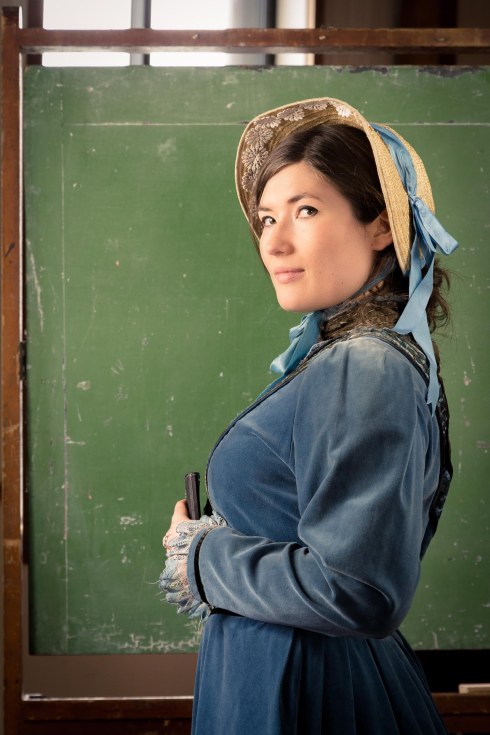



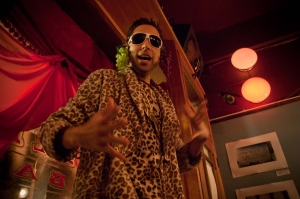

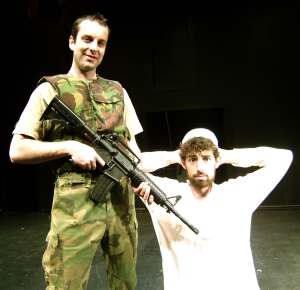 The Bacchanals present Other People’s Wars, adapted by Dean Parker from the book by Nicky Hager. Opening at BATS on Tuesday 17 April! More soon! x
The Bacchanals present Other People’s Wars, adapted by Dean Parker from the book by Nicky Hager. Opening at BATS on Tuesday 17 April! More soon! x
